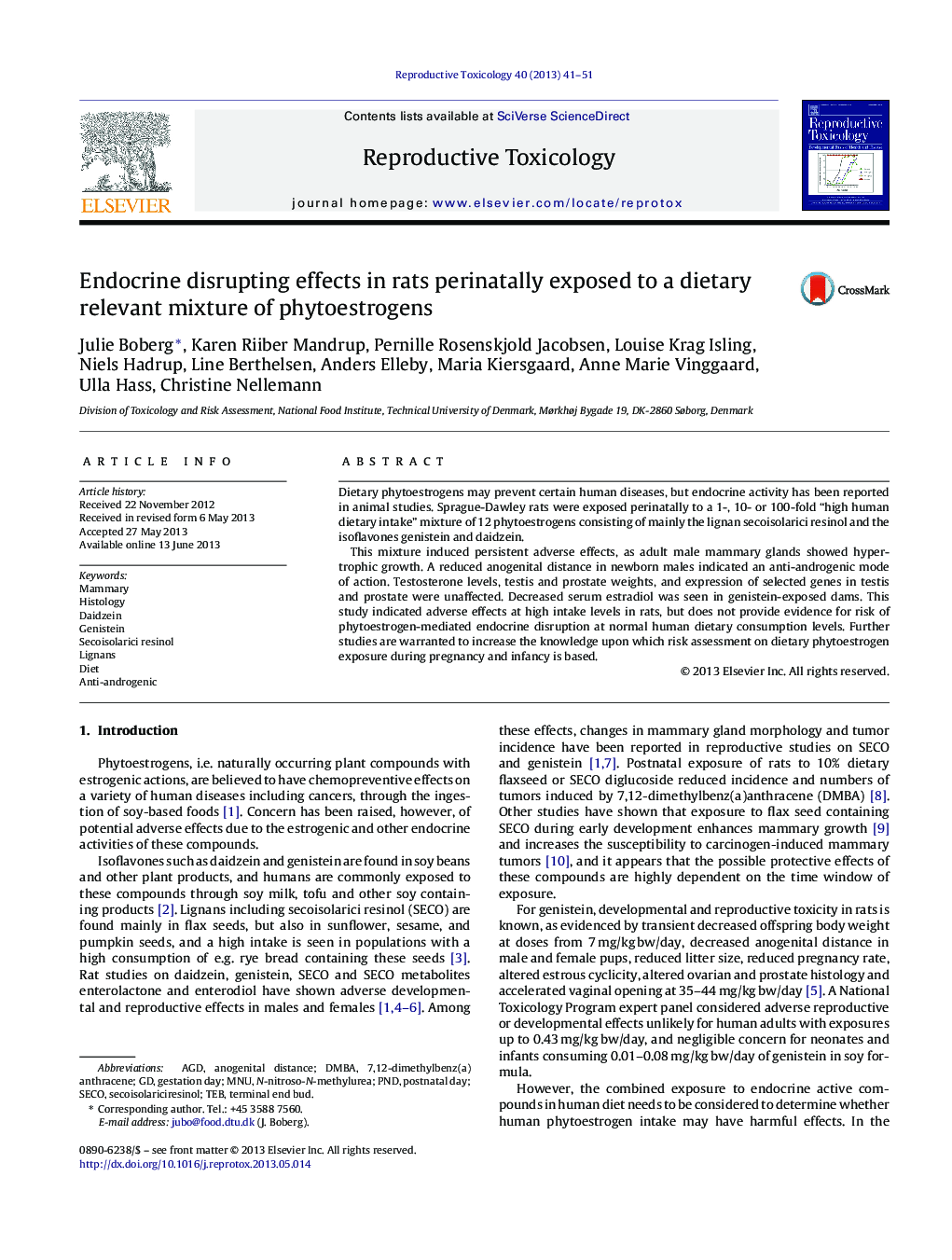| کد مقاله | کد نشریه | سال انتشار | مقاله انگلیسی | نسخه تمام متن |
|---|---|---|---|---|
| 2593542 | 1562179 | 2013 | 11 صفحه PDF | دانلود رایگان |

• High doses of a dietary relevant mixture of phytoestrogens induced endocrine disruption in rats.
• Mammary gland histology was altered in adult males after perinatal exposure.
• Anti-androgenic effects on anogenital distance were present in newborn males.
• An excessive human intake of phytoestrogens from dietary supplements or special dietary habits may contribute to endocrine disruption following exposure during fetal life.
Dietary phytoestrogens may prevent certain human diseases, but endocrine activity has been reported in animal studies. Sprague-Dawley rats were exposed perinatally to a 1-, 10- or 100-fold “high human dietary intake” mixture of 12 phytoestrogens consisting of mainly the lignan secoisolarici resinol and the isoflavones genistein and daidzein.This mixture induced persistent adverse effects, as adult male mammary glands showed hypertrophic growth. A reduced anogenital distance in newborn males indicated an anti-androgenic mode of action. Testosterone levels, testis and prostate weights, and expression of selected genes in testis and prostate were unaffected. Decreased serum estradiol was seen in genistein-exposed dams. This study indicated adverse effects at high intake levels in rats, but does not provide evidence for risk of phytoestrogen-mediated endocrine disruption at normal human dietary consumption levels. Further studies are warranted to increase the knowledge upon which risk assessment on dietary phytoestrogen exposure during pregnancy and infancy is based.
Journal: Reproductive Toxicology - Volume 40, September 2013, Pages 41–51